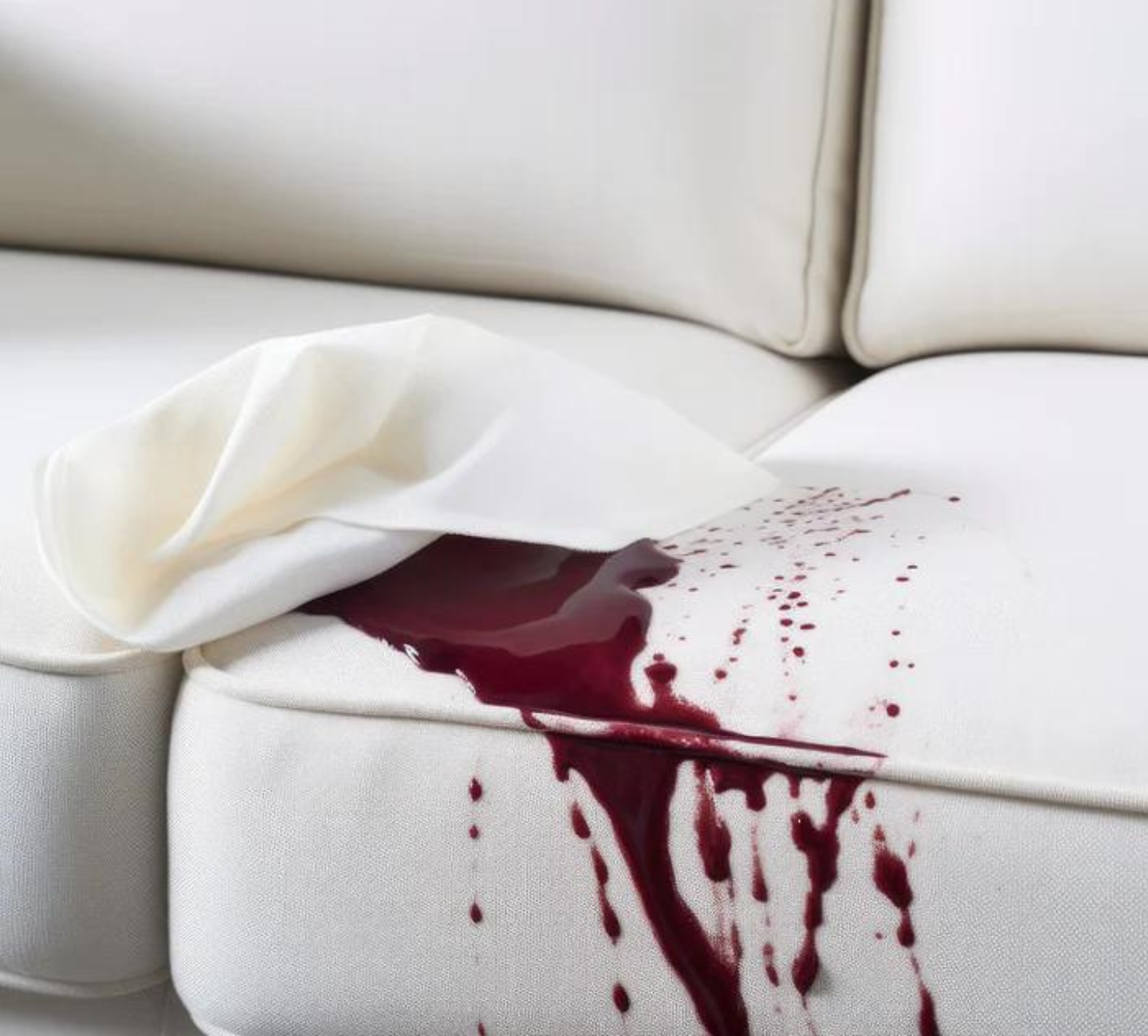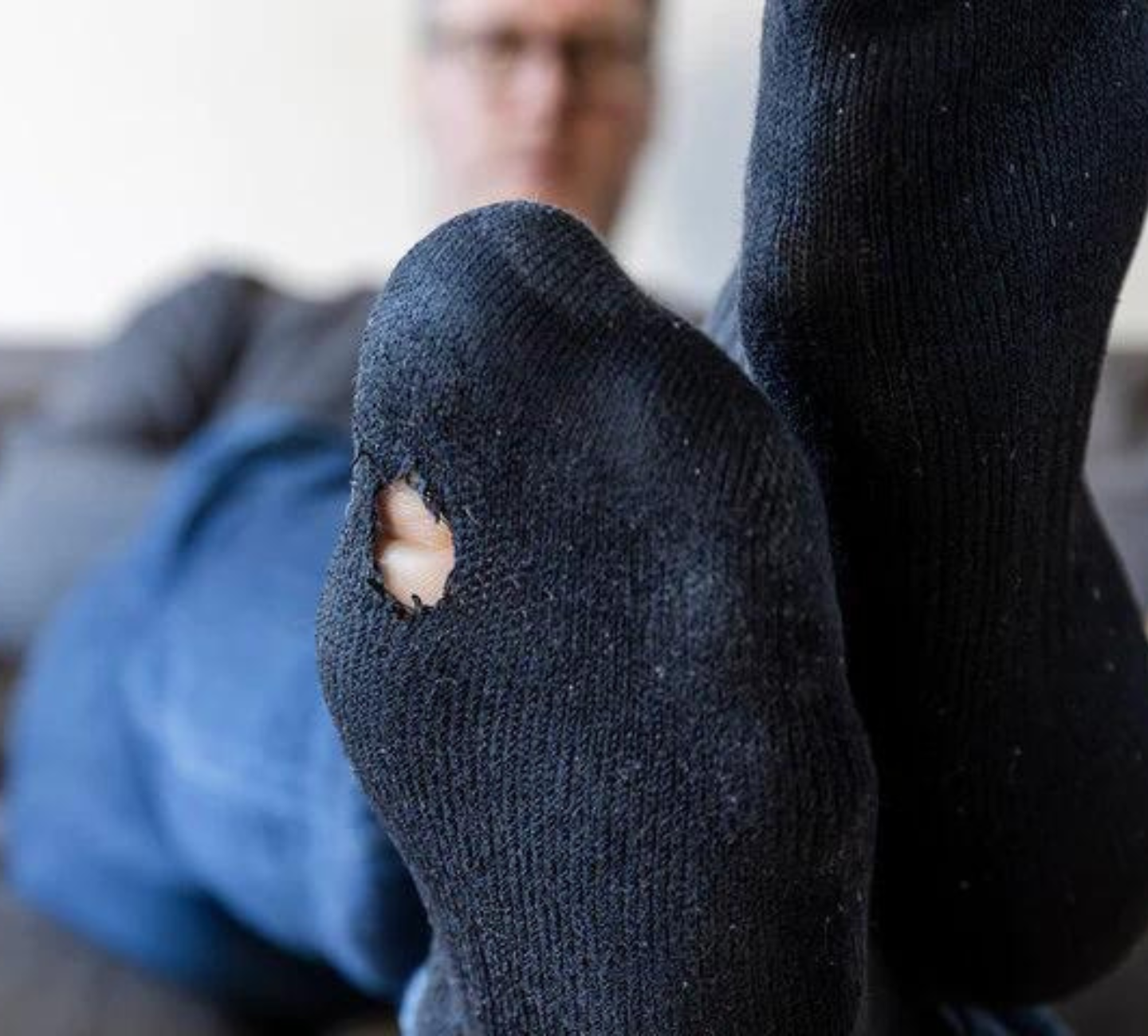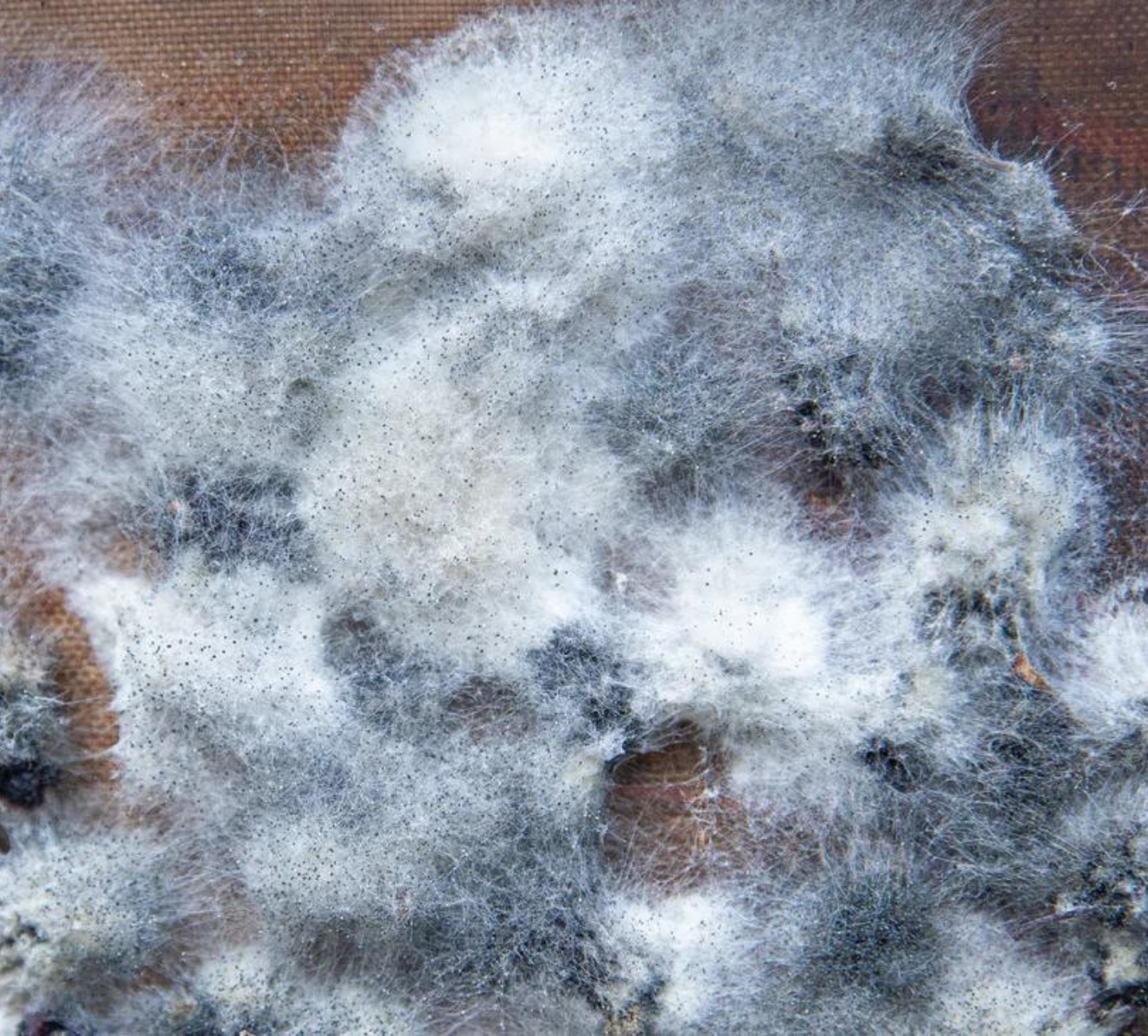Think your washable sofa is just for cozy movie nights and afternoon naps? Think again. This revealing article dives deep into the hidden world of what you're actually leaving behind on your sofa—from everyday germs to more unsettling substances—and how washable slipcovers can be your first line of defense.
If you thought your sofa's main stories were about movie marathons and comfy naps, it's time for a reality check. Ever thought about what your couch has seen? Or, more specifically, what it holds? Not to give you the heebie-jeebies, but our favorite seat in the house witnesses a range of...well, icky incidents. Even if you never spill a drop or put your feet up on the couch, you’re likely leaving behind more of a mess than you realize. Let's pull back the curtain and see what might be lingering in that upholstery of yours.
We all sweat, and often, our couch bears the brunt.
After a heated yoga session, you plop down on the couch to cool off. However, your sweat, carrying salts, proteins, and urea, seeps into the fabric. This damp residue can discolor your sofa and become a bacterial breeding ground. Even when you’re not dripping wet after physical activity, your body is still perspiring and leaving trace amounts of sweat on each surface you touch. And let’s face it: knowing your sofa's soaked in perspiration isn’t the best topic of conversation when you have guests over.
Beyond the odd nap drool, every hearty laugh, or gripping TV cliffhanger can sprinkle a bit of saliva onto your sofa cushions. If you bring kids or pets into the mix, there’s a good chance it’s going to be more than a sprinkle. This fluid might seem harmless, but it can foster a micro-world of germs. Plus, the idea of lounging amidst dried spit? Not so inviting when you think about it, especially if you’re hosting.
From the unnoticed papercut to unexpected nosebleeds, these tiny accidents mean your sofa's seen more than its fair share of blood. Blood can be a magnet for pathogens, and its iron-rich scent, if not cleaned, can become quite noticeable. The emotional toll of realizing you've been lounging on old blood spots? Well, it's a mood dampener, to say the least.
Your toddler, fresh out of diapers, has a minor accident on the couch. Beyond the immediate unpleasantness, urine can alter your sofa's pH balance, leading to degradation over time. There’s also the mental unease when you remember that spot where the accident happened, especially when pointing out to a guest where to sit.
Changing your baby’s diaper on the sofa seemed convenient until a minor leak. Even a trace amount, especially from babies or elders, can introduce harmful bacteria like E. coli into your living space. Beyond the health hazards, there’s a social stigma attached. No one wants to think about, let alone discuss, potential fecal residue on the place they sit.
Cold season means tissues everywhere, and more often than not, your sofa becomes ground zero for those sneezes and coughs. Mucus can harbor viruses, presenting a risk for anyone who comes in contact with it. Plus, the mere thought of it can make one’s skin crawl — Mucus is a potent mixture of glycoproteins, enzymes, antimicrobial peptides, and salts. Its main role? To slow down and neutralize threats. However, when mucus—laden with the day's catch of pathogens—finds its way onto your couch, it becomes a breeding ground.
According to a study by the Journal of Applied Microbiology, dried mucus can act as a persistent reservoir for these pathogens, allowing them to survive for days to weeks, especially in cooler, drier environments. This longevity means that a family member with the flu might just turn your living room into a flu-sharing fest. Every touch, every lean on that couch can transfer these resilient germs onto hands, which invariably migrate to faces, mouths, and noses.
Imagine a blacklight scan of your living space. Your sofa would likely outshine everything else. In essence, if one person has the flu in a shared living space, consider it a communal experience—courtesy of your unsuspecting couch. Who knew that your comfy oasis could double up as a petri dish during flu season?
Let’s face it: sofas often witness intimate moments. Now, while your couch won't impregnate you (yes, we're laughing too), the residue is very real. And let's not forget, some of the most-watched content, *ahem* adult content, often feature couches. Ever wondered about those sofas in post-production? Let’s not start an iceberg. And if these spots on your personal sofa aren’t dealt with, they could become a haven for bacteria, not to mention a source of personal embarrassment during gatherings.
Semen is more than just the microscopic swimmers; it contains enzymes, proteins, and other substances. When left to dry on fabric, it doesn't just fade away. Those enzymes and proteins can bind to fabric, creating stubborn stains. But the real kicker? Dried semen can still harbor bacteria and viruses. So before you sit, you want to make sure your sofa has been cleaned and sanitized.
Whether it’s from illness or a little too much to drink, vomit isn’t just an immediate mess. Its acidic nature can damage fabric, and the microbes present can be a health risk. If you don’t have a couch that comes apart, it can be a headache trying to clean and sanitize every crack and crevase. Plus, the lingering memory of the incident can be a constant mental block, both for the homeowner and repeat visitors.
If you’ve ever seen a dog with discoloration on its face due to tear stains, you understand the mark that tears can leave behind. Your couch and other fabrics in your home are no exception.
Emotional moments or a heart-wrenching movie can lead to a few tears shed on the couch. While they may seem harmless, like sweat, tears contain salts and enzymes that can attract bacteria. Knowing that your emotional residue remains can be a subtle psychological discomfort.
While a natural and nourishing fluid, accidental spills on the couch can introduce sugars that microbes love. While you are focused on feeding and helping your baby grow, you may find less pleasant types of growth on your couch as well in the form of bacteria.
Scrubbing the couch clean after spills is one of the last things a busy mother should have to deal with.
Before wrapping your sofa in plastic, consider this: the Feathers Machine-Washable Sofa Collection offers a resounding solution. The fabric of this custom couch doesn’t just resist stains—it actively repels unwanted liquids. All Feathers pieces feature 100% removable covers that allow you to wash your entire sofa or a section just as easily as doing a load of laundry.
Accidents? Simply unzip and toss the stained segment in the wash. Feeling a spring furniture refresh? Wash the whole sofa. You're not just getting a furniture upgrade but complete peace of mind.
Yes, the secrets living in our sofas can be startling, but knowledge is empowerment. With the right tools and the Feathers Machine-Washable Collection, you can recline with the assurance that you’re on top of the cleanliness game. Relaxation without the hidden nasties.
If you thought your sofa's main stories were about movie marathons and comfy naps, it's time for a reality check. Ever thought about what your couch has seen? Or, more specifically, what it holds? Not to give you the heebie-jeebies, but our favorite seat in the house witnesses a range of...well, icky incidents. Even if you never spill a drop or put your feet up on the couch, you’re likely leaving behind more of a mess than you realize. Let's pull back the curtain and see what might be lingering in that upholstery of yours.
1. Sweat – More Than Just Moisture

We all sweat, and often, our couch bears the brunt.
After a heated yoga session, you plop down on the couch to cool off. However, your sweat, carrying salts, proteins, and urea, seeps into the fabric. This damp residue can discolor your sofa and become a bacterial breeding ground. Even when you’re not dripping wet after physical activity, your body is still perspiring and leaving trace amounts of sweat on each surface you touch. And let’s face it: knowing your sofa's soaked in perspiration isn’t the best topic of conversation when you have guests over.
2. Saliva – Slick and Subtle

Beyond the odd nap drool, every hearty laugh, or gripping TV cliffhanger can sprinkle a bit of saliva onto your sofa cushions. If you bring kids or pets into the mix, there’s a good chance it’s going to be more than a sprinkle. This fluid might seem harmless, but it can foster a micro-world of germs. Plus, the idea of lounging amidst dried spit? Not so inviting when you think about it, especially if you’re hosting.
3. Blood – Tiny Drops, Big Impacts

From the unnoticed papercut to unexpected nosebleeds, these tiny accidents mean your sofa's seen more than its fair share of blood. Blood can be a magnet for pathogens, and its iron-rich scent, if not cleaned, can become quite noticeable. The emotional toll of realizing you've been lounging on old blood spots? Well, it's a mood dampener, to say the least.
4. Urine – Silent but Damaging

Your toddler, fresh out of diapers, has a minor accident on the couch. Beyond the immediate unpleasantness, urine can alter your sofa's pH balance, leading to degradation over time. There’s also the mental unease when you remember that spot where the accident happened, especially when pointing out to a guest where to sit.
5. Fecal Matter – The Unseen Offender

Changing your baby’s diaper on the sofa seemed convenient until a minor leak. Even a trace amount, especially from babies or elders, can introduce harmful bacteria like E. coli into your living space. Beyond the health hazards, there’s a social stigma attached. No one wants to think about, let alone discuss, potential fecal residue on the place they sit.
6. Mucus – Sticky and Tricky

Cold season means tissues everywhere, and more often than not, your sofa becomes ground zero for those sneezes and coughs. Mucus can harbor viruses, presenting a risk for anyone who comes in contact with it. Plus, the mere thought of it can make one’s skin crawl — Mucus is a potent mixture of glycoproteins, enzymes, antimicrobial peptides, and salts. Its main role? To slow down and neutralize threats. However, when mucus—laden with the day's catch of pathogens—finds its way onto your couch, it becomes a breeding ground.
According to a study by the Journal of Applied Microbiology, dried mucus can act as a persistent reservoir for these pathogens, allowing them to survive for days to weeks, especially in cooler, drier environments. This longevity means that a family member with the flu might just turn your living room into a flu-sharing fest. Every touch, every lean on that couch can transfer these resilient germs onto hands, which invariably migrate to faces, mouths, and noses.
Imagine a blacklight scan of your living space. Your sofa would likely outshine everything else. In essence, if one person has the flu in a shared living space, consider it a communal experience—courtesy of your unsuspecting couch. Who knew that your comfy oasis could double up as a petri dish during flu season?
7. Semen – The Delicate Issue

Let’s face it: sofas often witness intimate moments. Now, while your couch won't impregnate you (yes, we're laughing too), the residue is very real. And let's not forget, some of the most-watched content, *ahem* adult content, often feature couches. Ever wondered about those sofas in post-production? Let’s not start an iceberg. And if these spots on your personal sofa aren’t dealt with, they could become a haven for bacteria, not to mention a source of personal embarrassment during gatherings.
Semen is more than just the microscopic swimmers; it contains enzymes, proteins, and other substances. When left to dry on fabric, it doesn't just fade away. Those enzymes and proteins can bind to fabric, creating stubborn stains. But the real kicker? Dried semen can still harbor bacteria and viruses. So before you sit, you want to make sure your sofa has been cleaned and sanitized.
8. Vomit – Unplanned and Unpleasant

Whether it’s from illness or a little too much to drink, vomit isn’t just an immediate mess. Its acidic nature can damage fabric, and the microbes present can be a health risk. If you don’t have a couch that comes apart, it can be a headache trying to clean and sanitize every crack and crevase. Plus, the lingering memory of the incident can be a constant mental block, both for the homeowner and repeat visitors.
9. Tears – May Leave a Mark

If you’ve ever seen a dog with discoloration on its face due to tear stains, you understand the mark that tears can leave behind. Your couch and other fabrics in your home are no exception.
Emotional moments or a heart-wrenching movie can lead to a few tears shed on the couch. While they may seem harmless, like sweat, tears contain salts and enzymes that can attract bacteria. Knowing that your emotional residue remains can be a subtle psychological discomfort.
10. Breast Milk – A Gift of Life

While a natural and nourishing fluid, accidental spills on the couch can introduce sugars that microbes love. While you are focused on feeding and helping your baby grow, you may find less pleasant types of growth on your couch as well in the form of bacteria.
Scrubbing the couch clean after spills is one of the last things a busy mother should have to deal with.
What Can Be Done?

Before wrapping your sofa in plastic, consider this: the Feathers Machine-Washable Sofa Collection offers a resounding solution. The fabric of this custom couch doesn’t just resist stains—it actively repels unwanted liquids. All Feathers pieces feature 100% removable covers that allow you to wash your entire sofa or a section just as easily as doing a load of laundry.
Accidents? Simply unzip and toss the stained segment in the wash. Feeling a spring furniture refresh? Wash the whole sofa. You're not just getting a furniture upgrade but complete peace of mind.
Yes, the secrets living in our sofas can be startling, but knowledge is empowerment. With the right tools and the Feathers Machine-Washable Collection, you can recline with the assurance that you’re on top of the cleanliness game. Relaxation without the hidden nasties.





Leave a comment
All comments are moderated before being published.
This site is protected by hCaptcha and the hCaptcha Privacy Policy and Terms of Service apply.